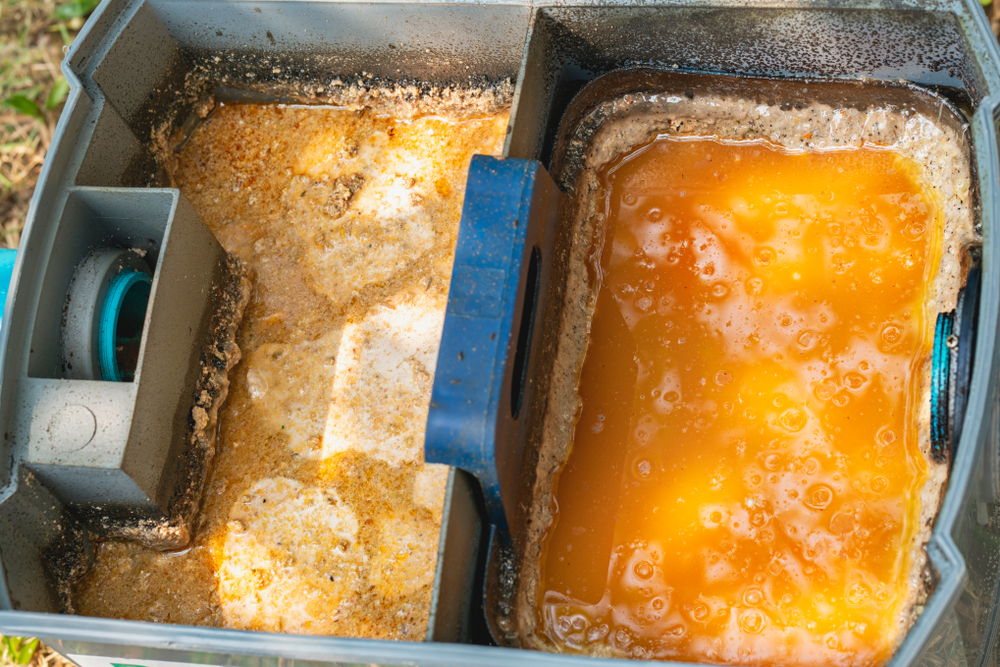
Grease Traps and the Importance of Its Maintenance
June 26, 2024 6:46 pm Leave your thoughtsGrease traps are an essential feature of commercial kitchens, serving as a critical line of defense against grease, oil, and other food particles that can clog drains and sewer lines. These traps work by intercepting and capturing fats, oils, and grease (FOG) before they can enter the wastewater system, preventing costly and potentially hazardous plumbing problems. In this guide, we’ll explore the importance of grease traps in commercial kitchens and the necessity of regular maintenance to keep them functioning properly.
The Role of Grease Traps in Commercial Kitchens
In a busy commercial kitchen, the production of grease and oil is inevitable, whether from cooking processes, food preparation, or dishwashing. Without proper management, these fats, oils, and grease can accumulate in drain lines and sewer pipes, leading to blockages, backups, and foul odors. Grease traps serve as a barrier to prevent FOG from entering the sewer system, intercepting these substances and allowing them to solidify and separate from the water before it is discharged into the municipal wastewater system.
The Importance of Grease Trap Maintenance
While grease traps play a crucial role in preventing plumbing problems, they require regular maintenance to remain effective. Over time, grease traps can become filled with accumulated FOG, food particles, and other debris, reducing their capacity and efficiency. Without proper maintenance, grease traps can become clogged, leading to backups, overflows, and costly repairs. Regular grease trap maintenance, including pumping and cleaning, is essential to ensure the continued functionality of these vital plumbing components.
Grease Trap Pumping: Removing Accumulated Waste
One of the most critical aspects of grease trap maintenance is pumping, which involves removing accumulated grease and debris from the trap to restore its capacity and efficiency. Grease trap pumping should be performed by trained professionals with the proper equipment and expertise to safely and effectively remove waste without causing damage to the trap or surrounding plumbing. The frequency of grease trap pumping depends on several factors, including the size of the trap, the volume of FOG generated, and local regulations and requirements. In general, grease traps should be pumped regularly to prevent overflows and maintain optimal performance.
Grease Trap Cleaning: Removing Residual Buildup
In addition to pumping, grease traps also require regular cleaning to remove residual buildup and ensure proper function. Cleaning involves scraping and scrubbing the interior surfaces of the trap to remove grease, oil, and food particles that may cling to the walls and baffles. Grease trap cleaning should be performed carefully to avoid damaging the trap or causing contamination of surrounding areas. Professional grease trap cleaners have the tools and techniques needed to thoroughly clean grease traps and restore them to like-new condition.
Compliance with Regulations and Requirements
In addition to preventing plumbing problems, regular grease trap maintenance is also essential for compliance with local regulations and requirements. Many municipalities have ordinances and guidelines in place governing the installation, operation, and maintenance of grease traps in commercial kitchens. Failure to adhere to these regulations can result in fines, penalties, and legal liabilities for business owners. By staying proactive with grease trap maintenance, commercial kitchen operators can ensure compliance with regulations and protect their businesses from potential consequences.
Prioritizing Grease Trap Maintenance for Commercial Kitchens
Grease traps are a vital component of commercial kitchens, serving to protect plumbing systems, prevent environmental contamination, and ensure compliance with regulations. By understanding the importance of grease trap maintenance and implementing regular pumping and cleaning schedules, commercial kitchen operators can prevent costly plumbing problems, maintain optimal performance, and protect their businesses from regulatory issues. With proper maintenance, grease traps can continue to serve as effective barriers against FOG buildup, allowing commercial kitchens to operate safely and efficiently for years to come.
Need a Septic Tank & Grease Trap Cleaning Company in Farmington, NH?
B.H. Cameron Septic Services LLC has been proudly serving the surrounding counties since 2005, providing efficient, cost-effective solutions to meet your residential or commercial septic system needs. We will help you develop your initial design and secure permits for installation or provide conversion to the city sewer system. We offer peace of mind with routine maintenance service after the job is done. When you contact B.H. Cameron Septic Services LLC, you will be greeted by one of our customer service staff. An experienced service technician will work directly with you to determine how we can help with your septic service or maintenance. Call us today!
Categorised in: Grease Trap Cleaning, Grease Trap Pumping
This post was written by admin
